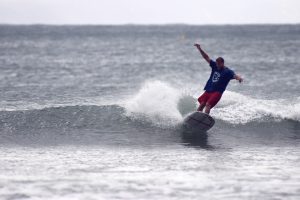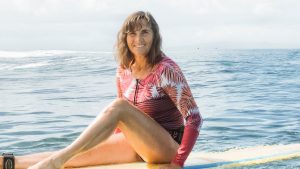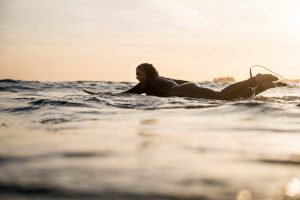
Episode 22: Meet Tom Wegener, PhD, Master Shaper and Surfing Legend
It was the middle of the afternoon in Queensland when I got hold of Tom. In his pink t-shirt, trimmed grey beard, his contagious smile and the sunshine pouring through the window, Tom was an incarnation of the Noosa vibes!
For the few unfamiliar among us, Tom Wegener is a surfer, filmmaker, actor, author, master shaper and an academic. In fact, he has collected so much wisdom on surfing and shaping over the years, he was recently awarded with a PhD on the Sustainability of the Surfboard Industry.




